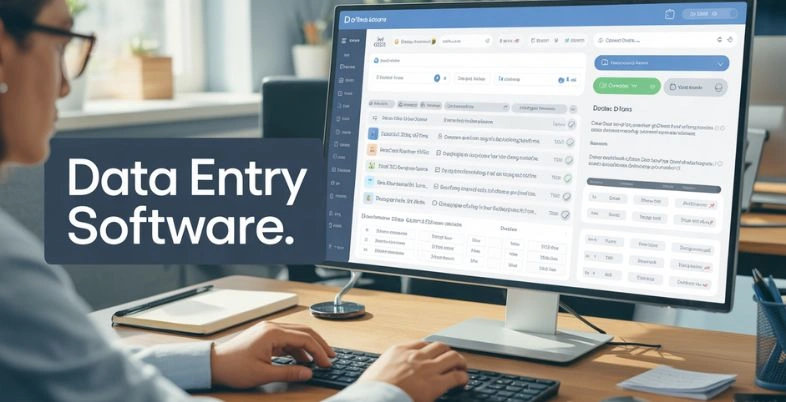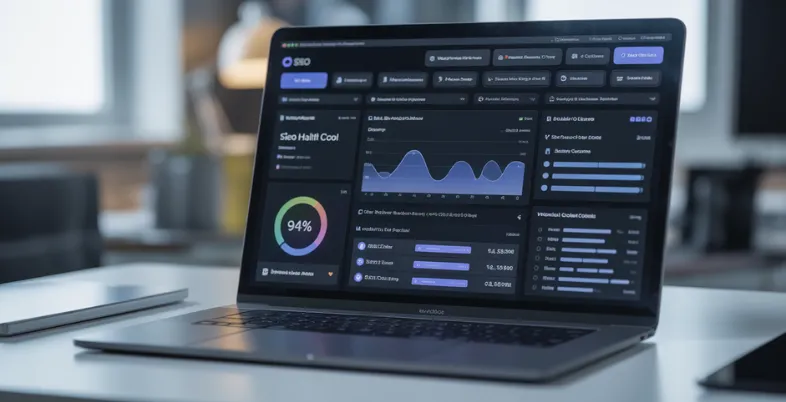In this modern and competitive digital world, companies are continually seeking ways to streamline their marketing operations to enhance customer connectivity and optimize revenue flow. Marketing automation software has become a game-changer technology that helps organizations to manage their lead nurturing, personalize customer experience, and scale their marketing processes effectively. These efficient technologies have changed the way organizations manage their customer relationship, since they simplify tedious processes, present tailored messages, and offer marvelous feedback on customer patterns of behavior.
Sophisticated marketing automation software is increasingly required by businesses in their realization of the need to provide customized experiences at scale. Ranging from the tiny startups to large-scale corporations, organizations in respective industries are using these tools to maximize their conversion rates, minimize manual efforts, and make better quality connections with their target consumers. Contemporary marketing automation software has in-depth solutions such as email campaign support, lead scoring, behavioral tracking, and multi-channel communication solutions, and these tools deliver measurable outcomes and a sustainable trend of business growth.
What is Marketing Automation Software?
Marketing automation software is a group of technology platforms that are used to automate, streamline, and measure marketing processes and tasks. Such advanced systems allow companies to cultivate their leads with multi-channel, personalized campaigns in addition to following the behaviour and interactions of clients as they are transacted across a multitude of touchpoints. By using automation marketing software, an organization can ensure that they are sending the right communication to the correct recipients at the right time; this dramatically boosts its engagement level and conversion potential.
Such platforms tend to be integrable with other business ecosystems, like customer relationship management (CRM) tools, e-commerce systems, and analytics solutions that create a unified setting that is used to manage customer data as well as marketing activities. The primary purpose of automating marketing software is to eliminate manual work, further eliminate the risk of human error, and enable a marketing team to focus on strategic tasks rather than on creative exercises.
Key Capabilities to Evaluate in Marketing Automation Platforms
In choosing the appropriate marketing automation program to suit your company, it is important to analyze programs with their fundamental functionalities and correlational ability that will correspond with your outlined marketing goals. The best solutions offer end-to-end sets of capabilities that work synergistically to produce powerful automated marketing campaigns.
- Campaign Email Management: This includes capabilities to create templates, automatic repetition, and time delays to ensure your messages reach your recipients at the most opportune moment and with catchy content that is likely to have them take action.
- Lead Nurturing and Scoring: Lead Scoring and nurturing advanced algorithms that automatically determine which prospects to prioritize based on their behavior and degree of engagement, demographics.
- Multi-Channel Support: Complete coverage of the most popular channels of communication, that is, email, SMS, social media, push messages, etc., to ensure that companies create harmonious omnichannel experiences and make customers available everywhere.
- Analytics and Reporting: Performance statistics, conversion data, and ROI data, coupled with actionable information concerning how to improve campaigns and customer preferences
- Workflow Automation: Simplicity, drag and drop capabilities to create advanced automated workflows that respond to customer behavior, priorities, and stages of life services
Comparison Table for Marketing Automation Software
| Platform | Rating | Best Feature |
| Omnisend | 4.8/5 | Omnichannel automation workflows |
| Sender | 4.6/5 | Affordable pricing with robust features |
| ActiveCampaign | 4.7/5 | Human-centric automation approach |
| HubSpot | 4.5/5 | Comprehensive inbound marketing suite |
| Venturz | 4.9/5 | Unified CRM and marketing automation system |
| Vendasta | 4.9/5 | AI-powered marketing automation |
| Mailchimp | 4.4/5 | User-friendly email automation |
| Marketo Engage | 4.6/5 | Enterprise-level marketing capabilities |
| Oracle Eloqua | 4.3/5 | Extensive integration ecosystem |
| Marketing Cloud Account Engagement | 4.4/5 | B2B-focused automation tools |
| Automizy | 4.2/5 | AI-powered subject line optimization |
| Constant Contact | 4.1/5 | Simplified campaign management |
Top 12 Marketing Automation Software
1. Omnisend

Rating: 4.8/5
Website: https://www.omnisend.com/
Best Use Cases: E-commerce omnichannel marketing and customer retention campaigns
One of the outstanding features of Omnisend is that it is a complete marketing automation tool that protects the smooth operation of omnichannel experiences of businesses. The key advantage of the platform is that automations allow combining compensation workflows with email, SMS, push notifications, and social media messaging channels in one job. The integrated approach allows companies to sell to their customers on the channel of their choice and also ensures that the message remains the same across all means of communication.
The advanced level of segmentation provided by the platform enables marketers to develop very targeted campaigns by customer purchase history, behavior, and engagement. Omnisend has pre-built automation templates that are tailored to the needs of e-commerce businesses, thus online retailers have ease in applying some of the popular revenue-enhancing sequencing strategies such as cart abandonment, welcome series, and post-purchase follow-up.
Key Features:
- Omnichannel workflow builder
- Advanced customer segmentation
- E-commerce integration suite
- Behavioral trigger automation
- Performance analytics dashboard
Pros:
- Comprehensive channel integration
- E-commerce optimization focus
- Intuitive workflow creation
Cons:
- Higher learning curve
- Limited B2B features
- Premium pricing tiers
Pricing: Free plan available
2. Sender

Rating: 4.6/5
Website: https://www.sender.net/
Best Use Cases: Budget-conscious businesses seeking powerful email and SMS automation
By offering robust capabilities alongside low-cost successive price structures that help bring advanced automation within reach of any size business, Sender offers unsurpassed value as a marketing automation software. It is a marketing automation platform focused on SMS and email marketing that offers professional-level tools at a price that long-established enterprises can afford to small business owners, bloggers, and B2B startups.
The smart automation tools on the platform are made up of advanced list segmentation, behavioral triggers, and an extensive form and pop-up builder, which enables businesses to develop their subscriber base through organic growth. Affordability is not the only platform functionality that suffers at the hands of Sender since the platform has advanced features such as A/B testing, comprehensive analytics, and the ability to integrate with other services that are comparable to services offered by more costly alternatives.
Key Features:
- Email/SMS automation workflows
- Smart segmentation tools
- Form/pop-up builder suite
- A/B testing capabilities
- Comprehensive analytics reporting
Pros:
- Exceptional value proposition
- Generous free plan
- User-friendly interface design
Cons:
- Limited channel options
- Basic CRM integration
- Fewer enterprise features
Pricing: Free plan available
3. ActiveCampaign

Rating: 4.7/5
Website: https://www.activecampaign.com/
Best Use Cases: Businesses requiring human-centric automation with advanced personalization capabilities
The aspect that sets ActiveCampaign apart in the competitive marketing automation software market is the attention it gives to the right combination of automation and the human element. The platform appreciates that although automation will be able to perform most marketing-related functions, other processes will also need human diagnosis and control. The philosophy can be seen in such features as intelligent notification systems that warn marketers and the sales team about the situations that require human attention.
It is best for developing advanced customer journeys that are personal and relevant, and not robotic and generic. The machine learning features of ActiveCampaign allow it to optimise send time and content suggestions as well as lead scoring, which is why ActiveCampaign is built on a CRM, facilitating a smooth handoff between sales and marketing teams. The conditional content functionality on the platform presents a high level of customization of the content in the emails because of the specific data about the subscribers and their behavior.
Key Features:
- Human-centric automation design
- Advanced personalization engine
- Integrated CRM system
- Machine learning optimization
- Conditional content delivery
Pros:
- Balanced automation approach
- Excellent personalization capabilities
- Strong sales integration
Cons:
- Complex feature set
- Steeper learning curve
- Higher pricing tiers
Pricing: Plans range from $15 to $145 per month
4. HubSpot

Rating: 4.5/5
Website: https://www.hubspot.com/
Best Use Cases: Comprehensive inbound marketing and integrated sales/marketing team collaboration
The Marketing Hub, HubSpot, is an unusual solution to marketing automation software applications because it focuses on inbound marketing approaches and offers combined solutions in marketing, sales, and customer care. The platform is strong because it attracts, engages, and delights customers via content marketing, search engine optimization, and social media management with robust automation.
The integrated nature of the platform also implies that marketing automation is integrated with the CRM platform, sales tools, and customer service options to create a comprehensive customer life cycle control platform. HubSpot is a good option based on the high value offered on the free role, as well as the ability to scale with the size of any company. The platform’s education resources and certifications assist users in getting maximum value out of their marketing automation software investment with increased capabilities and the development of a strategy.
Key Features:
- Inbound marketing toolkit
- Integrated CRM platform
- Content management system
- SEO optimization tools
- Cross-department collaboration features
Pros:
- Comprehensive platform integration
- Strong educational resources
- Excellent free tier
Cons:
- Can become expensive
- Feature complexity overload
- Steep learning requirements
Pricing: Plans start at $15 per seat monthly
5. Venturz

Rating: 4.9/5
Website: https://venturz.co
Best Use Cases: Startups and small businesses seeking an all-in-one marketing automation and CRM solution
Venturz is an innovative, all-in-one startup platform built to help startups, small businesses, and digital-first companies automate their marketing, manage customer relationships, and scale effortlessly — all within one powerful ecosystem.
What makes Venturz stand out is its seamless integration of CRM, marketing automation, analytics, and collaboration tools into a unified platform that’s easy to set up and intuitive to use. Whether you’re running campaigns, tracking leads, or nurturing long-term customer engagement, Venturz simplifies the process so your team can focus on results, not repetitive tasks.
The platform’s marketing automation capabilities allow you to create personalized, data-driven campaigns that reach customers at the right time across email, SMS, and social channels. Its drag-and-drop workflow builder and built-in analytics make it easy for anyone — regardless of technical expertise — to build effective automation journeys that drive conversions and boost ROI.
Key Features:
- Unified CRM and marketing automation system
- Chatbot builder and campaign automation tools
- Real-time analytics and performance dashboards
- Email and SMS marketing workflows
- Custom audience segmentation and targeting
- Team collaboration and project management suite
Pros:
- Combines CRM, marketing, and collaboration in one tool
- Powerful automation with an intuitive interface
- Ideal for startups and growing businesses
- Affordable and scalable pricing
Cons:
- Still expanding its third-party integrations
- Advanced analytics may require setup assistance
Pricing: Free plan available; premium plans start at $29/month
6. Vendasta

Rating: 4.9/5
Website: https://www.vendasta.com/
Best Use Cases: Multi-client marketing automation for agencies, franchises, and managed service providers supporting SMBs.
Vendasta is an AI customer acquisition and engagement platform built to help marketing agencies, franchisors, and MSPs streamline how they attract, convert, and retain customers. Unlike traditional marketing automation tools, Vendasta combines AI, automation, and business data into one unified platform that handles every stage of the customer journey—from lead generation to retention.
With Vendasta, partners can deploy out-of-the-box AI Employees that manage tasks such as lead capture, reputation management, social media marketing, and customer follow-ups. These AI Employees adapt to each client’s data and automate repetitive workflows, allowing teams to focus on strategy and growth. The platform also includes powerful collaboration tools for partners and SMB clients, making it easy to share insights, track performance, and deliver measurable results.
Key Features:
- AI-powered marketing automation
- White-label platform for partners
- Reputation and social media management
- Email and SMS campaign automation
- Unified CRM and sales enablement tools
Pros:
- All-in-one platform built for scale
- AI Employees ready to deploy in minutes
- Data-driven insights across the customer journey
- Ideal for multi-location and multi-client management
Cons:
- Requires onboarding to access full customization
- Best suited for agencies and partners, not individual users
Pricing: Vendasta’s pricing plan starts at $79 a month.
7. Mailchimp

Rating: 4.4/5
Website: https://mailchimp.com/
Best Use Cases: Small to medium businesses seeking user-friendly email marketing automation
Mailchimp has slowly transformed into a multifaceted marketing automation software program that accommodates business entities in need of developing their audience and deepening customer relationships. The user-friendly platform enables the platform to be accessed by all levels of marketers, and its automation features are highly advanced, capable of delivering custom campaigns and customer paths.
One of the strengths of the platform can be explained by its simplicity and efficiency, as it provides pre-built automation workflows in the typical marketing scenarios such as welcome series, abandoned cart recovery, and customer re-engagement campaigns. The integration system Mailchimp offers has a wide range of connectivity to e-commerce platforms and business tools, which is why small to medium companies should resort to its usage when they are interested in an all-in-one marketing tool that would not be too complex to learn and understand.
Key Features:
- Simplified automation workflows
- E-commerce platform integrations
- Website/landing page builder
- Audience segmentation tools
- Marketing calendar planning
Pros:
- Intuitive user interface
- Extensive integration options
- Comprehensive feature set
Cons:
- Limited advanced features
- Pricing increases quickly
- Basic reporting capabilities
Pricing: Essentials plan at $13/month
8. Marketo Engage

Rating: 4.6/5
Website: https://www.adobe.com/products/marketo
Best Use Cases: Enterprise-level marketing automation across multiple channels and touchpoints
Marketo Engage (integrated with Adobe Experience Cloud) is an enterprise-level marketing automation platform that is specifically configured to manage marketing processes through complex, multi-channel operations that support large volume activities. The platform has extensive functionality that incorporates digital advertising, social media marketing, Account-based marketing, and conventional email automation that supports extensive organizations that require advanced marketing automation.
Marketo Engage has evolved its abilities since its acquisition by Adobe to incorporate more integrations with creative tools, analysis tools, customer experience management products, and more. The platform is also well-suited to working at scale, with complex customer and journey data, and can deliver sophisticated lead management, revenue attribution, and cross-channel campaign orchestration to support the needs of enterprise marketing organizations.
Key Features:
- Multi-channel campaign orchestration
- Advanced lead management
- Revenue attribution modeling
- Account-based marketing tools
- Enterprise-grade scalability
Pros:
- Comprehensive enterprise features
- Adobe ecosystem integration
- Advanced analytics capabilities
Cons:
- Complex implementation process
- High cost structure
- Requires technical expertise
Pricing: Custom pricing available
9. Oracle Eloqua

Rating: 4.3/5
Website: https://www.oracle.com/in/
Best Use Cases: B2B enterprises requiring extensive integrations and advanced personalization
The product positioning should be executed in a way that Oracle Eloqua provides premium marketing automation software made especially to cater to the needs of B2B marketers and enterprise organizations. The most distinctive thing about the platform is the presence of an extensive integration ecosystem, in which there are more than 500 pre-built connectors that enable the smooth movement of data among marketing tools, CRM systems, and business applications. Such a level of connectivity allows advanced lead nurturing and account-based marketing processes.
Advanced personalization capabilities of the platform involve machine learning and behavioral data, and provide highly relevant content experiences at various touchpoints. To enable an enterprise marketing organization to optimize its strategy and deliver clear Realization of Investment, Oracle Eloqua offers detailed reporting and analytic capabilities based on campaign tracking, lead monitoring, and revenue analysis tools to help enterprise marketing organizations maximize their strategy and deliver clear Realization of Investment using its automation platform.
Key Features:
- Works with many different software tools
- Smart customization for each customer
- Strong security for large companies
- Smart system to rank potential customers
- Detailed reports and data tracking
Pros:
- Connects easily with other business tools
- Built specifically for business-to-business marketing
- Meets strict security requirements
Cons:
- Very expensive to get started
- The interface can be confusing to use
- Takes a long time to set up properly
Pricing: Basic version costs $2,000 per month
10. Marketing Cloud Account Engagement

Rating: 4.4/5
Website: https://www.salesforce.com/marketing/b2b-automation/
Best Use Cases: Companies that sell to other businesses and want their sales and marketing teams to work together better
Marketing cloud account engagement was earlier referred to as Pardot prior to Salesforce rebranding it. This platform is oriented toward automating marketing and sales processes of business organizations, making other business organizations their customers. It is the ability to minimize the differences between the marketing and sales departments that makes it its strongest point. It seamlessly works with other existing customer relationship management tools because it is run on the Salesforce environment. Marketers can construct automated lead-nurturing campaigns that recognize when leads are nearing a sales-ready state and then funnel that qualified prospect to the correct sales rep directly.
The B2B orientation of the platform is seen in such features as progressive profiling, in which the information about prospects is gathered over time, and the more advanced lead scoring model, which sees the importance of both the explicit information and patterns of behavioral engagement. The account-based marketing capabilities of Marketing Cloud Account Engagement enable B2 to B organizations to narrow their focus on individual companies and decision-makers and launch tailored campaigns that achieve faster conversion results and reduce sales cycles.
Key Features:
- Native Salesforce CRM connectivity
- Dynamic profile enhancement capabilities
- Account-focused marketing solutions
- Sophisticated prospect scoring algorithms
- Sales and marketing coordination tools
Pros:
- Seamless Salesforce platform integration
- Dedicated B2B marketing specialization
- Comprehensive lead handling capabilities
Cons:
- High-cost investment requirements
- Heavy reliance on Salesforce infrastructure
- Minimal consumer marketing functionality
Pricing: Growth package starts at $1,250/month
11. Automizy

Rating: 4.2/5
Website: https://automizy.com/
Best Use Cases: Businesses seeking AI-enhanced email marketing with optimization features
Automizy incorporates the power of artificial intelligence into the marketing automation platform using new features such as AI subject line testing and analytics that can predict performance. The platform is aimed at maximizing the use of email marketing, filling in with smart automation, learning campaign data, and improving outcomes each time. This empirical approach makes businesses accomplish improved open rates, click-through rates, and the overall performance of the campaigns.
Powerful automation and elegant design, the user-friendly interface of the platform provides a complex spectrum of automation with an intuitive user experience, which allows advanced marketing automation to be accessible to teams at all levels of technical knowledge. The workflow builder that falls within Automizy gives marketers the ability to develop their sophisticated automation paths, whereas its AI feature supplies suggestions on how to further optimize the campaign performance using past performance data and industry averages.
Key Features:
- AI subject line testing
- Predictive send optimization
- Automated workflow builder
- Advanced segmentation tools
- Performance analytics dashboard
Pros:
- AI-powered optimization features
- Intuitive workflow design
- Competitive pricing structure
Cons:
- Limited channel options
- Smaller integration ecosystem
- Fewer advanced features
Pricing: Plans range from $9 to $119 per month
12. Constant Contact

Rating: 4.1/5
Website: https://www.constantcontact.com/
Best Use Cases: Small businesses seeking straightforward email marketing automation
Constant Contact is a marketing automation software that is tailored to be straightforward and effective, and it is probably the best solution for the marketing needs of small businesses and organisations that do not really need complex and complicated marketing tools, but rather a powerful tool that can be utilised easily. The advantage of the platform is that it has a clean and easy-to-use UI, where users can create advanced and generate automated email campaigns effortlessly and in a short period of time without requiring a lot of training and technical knowledge.
It has the necessary automation features such as auto-campaigns, collection of automated emails, and segmented follow-up messages, enabling businesses to remain in touch with their audiences over time. Their template library and drag-and-drop design tools allow users to design professional-looking emails in a matter of minutes, with their reporting capabilities offering a clear overview of how well a campaign performs, and what subscriber engagement behavior may look like.
Key Features:
- Simplified automation workflows
- Professional email templates
- Contact list management
- Event marketing tools
- Social media integration
Pros:
- User-friendly interface design
- Strong customer support
- Affordable pricing options
Cons:
- Limited advanced features
- Basic segmentation options
- Fewer integration choices
Pricing: Plan starts from $12 to $80 per month
How to Choose the Right Marketing Automation Software
One of the key factors that will guide you in choosing the most appropriate marketing automation software to use in your organization is taking a careful look at your specific needs, available resources, and future goals. The platform of choice ought to balance with your business requirements as well as allow the platform to scale as your marketing activities grow.
- Budget: Understand both the upfront cost and long-term expense, such as the setup fees, training costs, and possible integration costs.
- Features: Determine which automation functions are directly necessary to be part of your immediate marketing approach and which ones are desirable but may be of use in the future.
- Integration: Make sure the marketing automation software you settled on is compatible with the business systems and platforms in use, such as CRM, e-commerce, analytics tools, and the like.
- Scalability: Select a service provider with the capability to scale with your business, accommodating larger volumes of contacts, more complex campaigns, and/or more team members without the need to migrate to a new system.
- Support: Review the quality and accessibility of customer support, training, and documentation.
Conclusion
In the modern market environment, marketing automation software has become a tool that cannot be neglected by companies that need to optimize their marketing operations, enhance customer outreach, and secure sustainable growth in the context of the competitive modern market environment. Marketing automation platforms analyzed as part of this comprehensive guide reflect a wide range of approaches to automation, including low-cost solutions that fit perfectly into a small company or complex enterprise-grade platforms that can handle complex, multi-channel campaigns at scale.
The secret of success in marketing automation software is to select one tool or a platform that best suits your specific business, technical, and growth requirements. Independent of what aligned best with your goals, omnichannel integrations like Omnisend, more value-oriented solutions in the form of Sender, or all-around experiences like HubSpot, each of them has advantages that can transform your marketing process when utilized correctly.
With the digital marketing environment reshaping every day, the adoption of high-quality marketing automation software becomes all the more important to ensure a competitive edge and consistent personal customer experiences that lead to tangible outcomes. The platforms listed in this guide are the most popular on the market today of marketing automation technologies, and each of them has its advantages, so they fit more or less business needs and goals.
With a thorough assessment of your needs and a well-chosen solution, you have a chance to implement marketing automation software and make operations more efficient, enhance customer relations, and guarantee the sustainable growth of your business.
Frequently Asked Questions
How much, on average, does marketing automation software cost?
Pricing of marketing automation software options can run between free plans with basic functionality to enterprise-level monthly plans, amounting to the thousands. A large range of appropriate options is available to most of the small to medium businesses between 15-300 Per Month.
What is the time frame it takes to introduce marketing automation software?
The timeframes of implementation are subject to the complexity of the platforms and business needs. Basic email automation may take days to configure, whilst end-to-end enterprise-level solutions can take 3-6 months to implement.
Does marketing automation software support existing CRM?
The majority of current marketing automation solutions support CRM integrations and allow the process to (either natively or in a third-party module). It is a necessary connectivity that helps bind together lead management and the alignment of sales.
How are email marketing and software related to marketing automation differently?
Email marketing is mainly concentrated on the need to send email campaigns, whereas marketing automation software involves multi-channel communication, lead scoring, behavioral triggers, and end-to-end management of the customer journey via multiple customer touchpoints.
How can I quantify the ROI of marketing automation software?
Measure performance with lead generation costs, conversion rates, customer and lifetime value, and revenue attribution. Leading platforms offer real-time analytics, which is built in to report on campaign performance and show measurable ROI.






